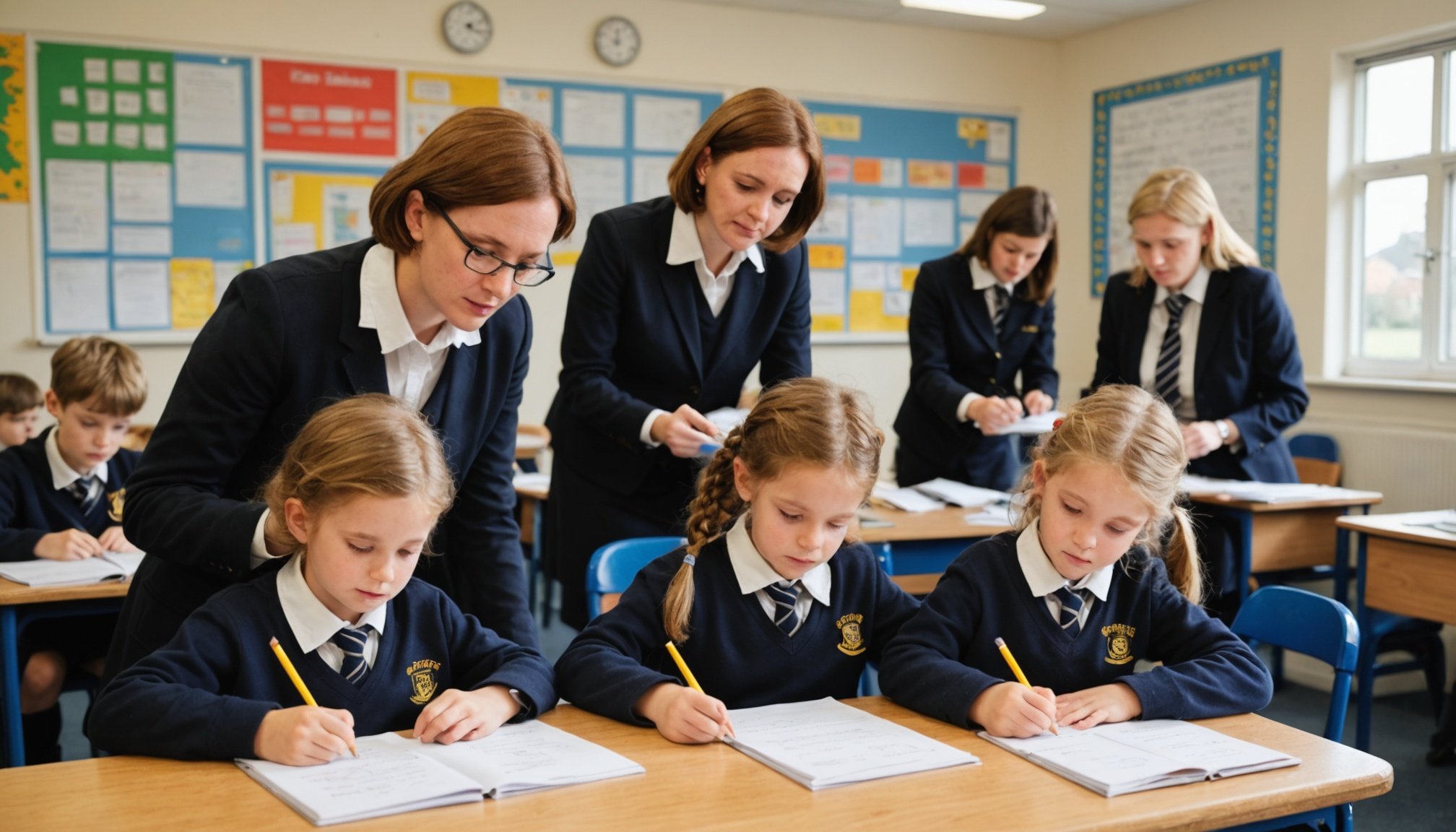In the ever-evolving landscape of education, it’s imperative to keep abreast of the changes that impact the way our schools function. One such critical aspect that directly affects the quality of education provided in schools across England is the Office for Standards in Education, Children’s Services and Skills (Ofsted) inspection. Ofsted inspections are comprehensive evaluations carried out to ensure that schools are providing a high standard of education and safeguarding their pupils. The results of these inspections are then graded and published, allowing parents, staff, and the wider community to understand how well the school is performing. Here, we delve into the latest changes that Ofsted has made in their inspection framework for primary schools in England.
The New Inspection Framework
In recent years, Ofsted has made significant changes to its inspection framework, which has a direct impact on primary schools. The new framework has been designed to provide a more balanced judgement of a school’s quality.
Avez-vous vu cela : Mastering the UK”s Online Divorce Process: A Comprehensive Guide to the New Application System
The changes in the framework include a shift in focus from exam results and data to the quality of education a school provides. This allows inspectors to look beyond raw scores and evaluate how well a school is teaching its pupils. The new framework also places a greater emphasis on the curriculum – its breadth, depth, and progression. Inspectors will now examine how well the school’s curriculum equips pupils with the knowledge and capabilities they need for the future.
What Inspectors will now be looking for?
With this new framework, the inspectors will be looking for a variety of factors that contribute to the overall quality of education.
A lire aussi : How to become a foster parent in the UK?
Firstly, the inspectors will scrutinise the school’s curriculum, considering its intent, implementation, and impact. They will assess whether the curriculum is ambitious, broad, deep, and well sequenced. The inspectors will also evaluate how effectively it is being taught in the classroom.
Secondly, the inspectors will assess the school’s method of teaching and how effective it is in ensuring pupils understand and remember what they’ve learned. They’ll also look at how the school helps pupils to apply what they’ve learned to different contexts.
Lastly, Ofsted has placed a stronger emphasis on personal development and behaviour. Inspectors will assess how well the school is promoting pupils’ personal development, including their behaviour and attitudes to learning. They will also evaluate the school’s strategy for promoting pupils’ physical and mental health.
Grading and Reporting
The grading system has also seen a few changes. Ofsted has reduced the number of overall judgement categories from four to two. Now, schools will only be classified as either ‘good’ or ‘requires improvement’, doing away with the ‘outstanding’ and ‘inadequate’ categories.
The reports published after each inspection have also become more detailed. They provide specific areas of strength, along with areas that require improvement. The aim is to give a clearer picture of what the school is doing well and where it can improve. This provides valuable insights for the school staff, allowing them to focus their efforts on areas where improvement is needed.
Safeguarding Measures
Safeguarding pupils has always been a priority for Ofsted. The new inspection framework has further heightened this emphasis.
Inspectors will now pay close attention to the school’s safeguarding policies, practices, and culture. They will assess the effectiveness of the school’s strategies to ensure the safety and well-being of its pupils. This includes measures to prevent bullying, abuse, and neglect, as well as strategies to promote positive mental health.
The new inspection framework also requires schools to prove they have robust systems in place to handle safeguarding concerns. They must show that they have trained and competent staff who can identify and respond to signs of abuse or neglect.
In essence, the latest Ofsted inspection changes place a greater emphasis on a holistic approach to education. They aim to ensure that schools not only deliver high-quality education but also foster personal development, safeguard their pupils, and promote a positive learning environment. The changes are indeed a step towards ensuring that every child in England has access to a quality education that helps them reach their full potential.
The Role of the Lead Inspector
In the new Ofsted inspection framework, the role of the lead inspector has been enhanced to ensure a thorough examination of the school’s performance. The lead inspector will now play a pivotal role in evaluating the quality of education, the school’s safeguarding measures, and the personal development of pupils.
The lead inspector will work closely with the school’s senior leadership team to understand their strategies for curriculum delivery, teaching methods, and safeguarding practices. The lead inspector will assess if these strategies are ambitious, coherent, and effective in providing a quality education to all pupils.
In addition to this, the lead inspector will also review how the school promotes the personal development and welfare of its pupils. This includes understanding how the school fosters positive attitudes to learning, encourages participation in extra-curricular activities, promotes physical and mental health, and prepares pupils for life in modern Britain.
Furthermore, the lead inspector will also evaluate the school’s safeguarding measures. They will assess the effectiveness of the school’s policies and strategies to prevent bullying, abuse, and neglect as well as how the school promotes positive mental health. The lead inspector will also examine the school’s system for handling safeguarding concerns, ensuring that it has competent and trained staff who can identify and respond to signs of abuse or neglect.
Overall, the lead inspector is tasked with providing a comprehensive and balanced judgement of the school’s performance, taking into account a wide range of factors from curriculum delivery to personal development and safeguarding.
Conclusion: Benefits and Implications of the New Ofsted Inspection Changes
The latest changes to the Ofsted inspection framework have brought about a shift in the way England’s primary schools are evaluated. Schools are now assessed not just on the basis of exam results and data, but on a broader array of factors which ensure a holistic approach to education.
The key benefits of these changes are manifold. Firstly, they provide a more balanced and comprehensive judgement of a school’s performance. This allows parents, staff, and the wider community to have a clearer picture of the school’s strengths and areas that require improvement.
Secondly, the changes place an emphasis on the quality of education and the school’s curriculum. This ensures that Ofsted inspectors are evaluating how well a school is teaching its pupils, and equipping them with the skills they need for their future studies and employment.
Thirdly, the focus on personal development and the school’s safeguarding measures ensures that schools are not just delivering high-quality education, but also fostering a safe and nurturing environment for their pupils.
However, with these changes come certain implications for schools. Schools will have to ensure their curriculums are broad, balanced, and ambitious. They will need to place a greater emphasis on the personal development of pupils and ensure that their safeguarding practices are robust and effective.
With this new inspection framework, Ofsted aims to ensure that every child in England has access to a quality education that not only imparts knowledge but also promotes personal development, guarantees safety, and fosters a positive learning environment. These changes are a significant step towards promoting high standards of education across all primary schools, helping every child reach their maximum potential.











